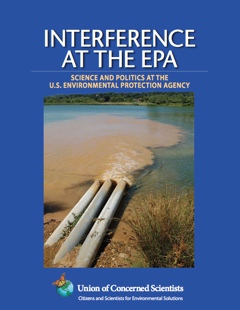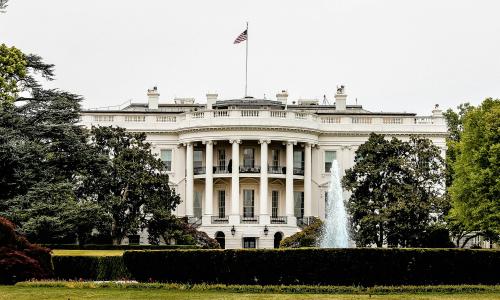In an investigation of political interference at the Environmental Protection Agency (EPA), hundreds of scientists reported political interference in their work, significant barriers to the free communication of scientific results, and concerns about the agency's effectiveness. The results of the investigation are detailed in a UCS report, Interference at the EPA: Politics and Science at the U.S. Environmental Protection Agency.
Please also explore the numerous fact sheets we have created on this issue, providing a focused examination of EPA Region 9 (The Pacific Southwest), and EPA Region 4 (The Southeast), in addition to taking a look at air pollution, climate change, toxics, and the relationship between the EPA and The White House.
Congress has taken notice and has held numerous hearings about science and policy at the EPA. UCS Senior Scientist Francesca Grifo testified about the investigation at three separate hearings:
- September 18, 2008, House Energy and Commerce Committee hearing on scientific integrity at the EPA (written testimony)
- May 20, 2008, U.S. House Oversight and Government Reform committee hearing on EPA’s flawed 2008 ground-level ozone pollution standards (written testimony, oral testimony)
- May 7, 2008, U.S. Senate Environment and Public Works oversight subcommittee hearing on science and environmental regulatory decisions (written testimony)
The U.S. Environmental Protection Agency (EPA) has the simple yet profound charge "to protect human health and the environment." EPA scientists apply their expertise to protect the public from air and water pollution, clean up hazardous waste, and study emerging threats such as global warming. Because each year brings new and potentially toxic chemicals into our homes and workplaces, because air pollution still threatens our public health, and because environmental challenges are becoming more complex and global, a strong and capable EPA is more important than ever.
Yet challenges from industry lobbyists and some political leaders to the agency's decisions have too often led to the suppression and distortion of the scientific findings underlying those decisions—to the detriment of both science and the health of our nation. While every regulatory agency must balance scientific findings with other considerations, policy makers need access to the highest-quality scientific information to make fully informed decisions.
Concern over this problem led the Union of Concerned Scientists (UCS) to investigate political interference in science at the EPA. The investigation combines dozens of interviews with current and former EPA staff, analysis of government documents, more than 1,600 responses to a survey sent to current EPA scientists, and written comments from EPA scientists.




